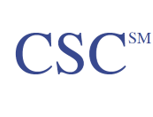Policy and Procedure for Counseling Services and Consulting, LLC, also known as CSCsm in the State of Indiana
Procedure for Therapists
Procedural requirements as defined under article 4.4 (440 IAC)
Referrals may call the general office number (260-438-1828). Voice mail and text are available 24/7 on this password protected device for an appointment. Although walk-ins are accepted, appointments are encouraged. Appointment times allow the clients to schedule appointments that best fit their work schedules. We encourage clients to work around their work schedule in order to not miss work since we have a flexible menu of rotating schedules to accommodate both day and evening workers.
Admission Criteria IAC 4.4-2-4.5 (c)
After the client arrives at CSCsm, the following procedure takes place:
- Information from the referral source is reviewed, if applicable. This is to establish the customer has a documented history of current excessive use of alcohol or other drugs.
- Additionally, the client is experiencing significant functioning impairment of one or more of the following areas: activities of daily life, interpersonal functioning, psychological functioning, the ability to live without recurrent views of AOD (alcohol or drugs).
- During the intake process, the client’s biopsychosocial evaluation should consider if the client has adequate social/family support to promote recovery.
- Additionally, the biopsychosocial report, as well as, the initial psychological survey should contain data for evaluating medical and psychiatric conditions that could potentially compromise, deter, or modify participation in treatment.
- Review and establish the level of care. Information from the biopsychosocial report and the psychological survey will help establish level of care recommendations. Also, diagnostic impressions from test tools such as the DSM 5 are valuable when determining level of care recommendations.
Consumer Intake Assessments 440 IAC 4.4-2-4.5 (d) and (e).
CSC shall adhere to the written policy procedure for conducting consumer intake assessments using the current DSM 5, MAST, DAST, SASSI II as validated test tools, as well as, the approved biopsychosocial information gathering tool.
- The client intake assessment should take place within two weeks of the client’s initial contact with the agency. Additionally, if a referral agency is involved noncompliant contact will be reported back at the end of the two-week timeline.
- Intake assessment shall include, but not limited to, the following information: a biopsychosocial comprehensive history, evaluation of emotional and behavioral functioning (Burns Depression and Anxiety Scales), alcohol and drug use history (DSM 5, MAST, DAST, SASSI II) gambling assessment tool SOGS (South Oaks Gambling Screen), to include current and past medical conditions. Also, the client is to be screened at the initial assessment for co-occurring disorders, which will include gambling, disorders as well. CSC shall refer the client for the proper level of appropriate treatment based on their clinical impression. CSC will refer the client to another program that has specific expertise to meet their needs such as: medical issues or unstable psychiatric conditions, which preclude the level of treatment available at CSC.
Policy and Procedure for Treatment Planning 440 IAC 4.4-2-4.5 (f) (g)
- Each client should have a written individualized treatment plan which comes from the overall assessment process of evaluating biological, psychological, and social functioning
- Each client shall participate in the development of their treatment plan.
- The comprehensive treatment plan shall be completed and acknowledged in writing by the client no later than the third session.
- During the review process treatment goals should be addressed and modified based on need.
Each individual treatment plan shall include, at the minimum the following:
- Problems identified to be addressed during treatment.
- Specific goals identified to measure outcomes to specific problems.
- Additional resource referrals to supplement the program when not offered at CSC.
- Encourage clients to participate in self-help meetings such as AA/NA/CA, or any additional support program outside of the agency.
- The client needs to sign and date any change in treatment plans, review of treatment plans, or significant changes in progress, thus acknowledging both verbally and in writing their current standing in the program.
Consumer Progress 440 IAC 4.4-2-4.5 (h)
- Each encounter therapeutically with the client is to be documented in the service plan. The current documentation platform used is Cabonite. Cabonite is a secure Internet-based document system that is backed up each night in multiple locations.
- The date of each client contact, or modification of their records is to include the date of the transaction. The person completing the transactions must be identified by their name or initials.
- Entries of all interactions with the patients must be documented no later than 24 hours after contact with the client.
Discharge Planning 440 IAC 4.4-2-4.5 (i)
- The discharge plan concerning each client’s goals must be reviewed and documented with the client at the time of discharge regarding progress toward goal attainment. The tool used is a “How Far Have I Come” spread sheet that reviews all the key points of the client’s treatment. Records are kept for a minimum of 7 years. All records at CSC are stored in Simple Practice, also they may be scanned into ScanSnap, on site at CSC.
- The final evaluation is to be discussed in detail with the client.
- Recommendations for aftercare, based on the client’s means, are discussed along with a community resources guide. This guide is comprehensive and covers everything from self-help support groups to housing, transportation services, and free legal services.
